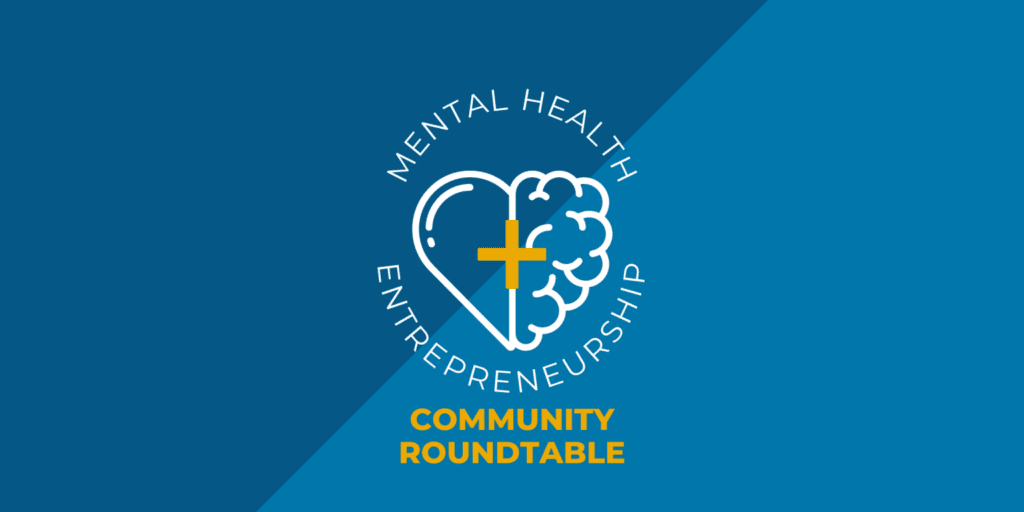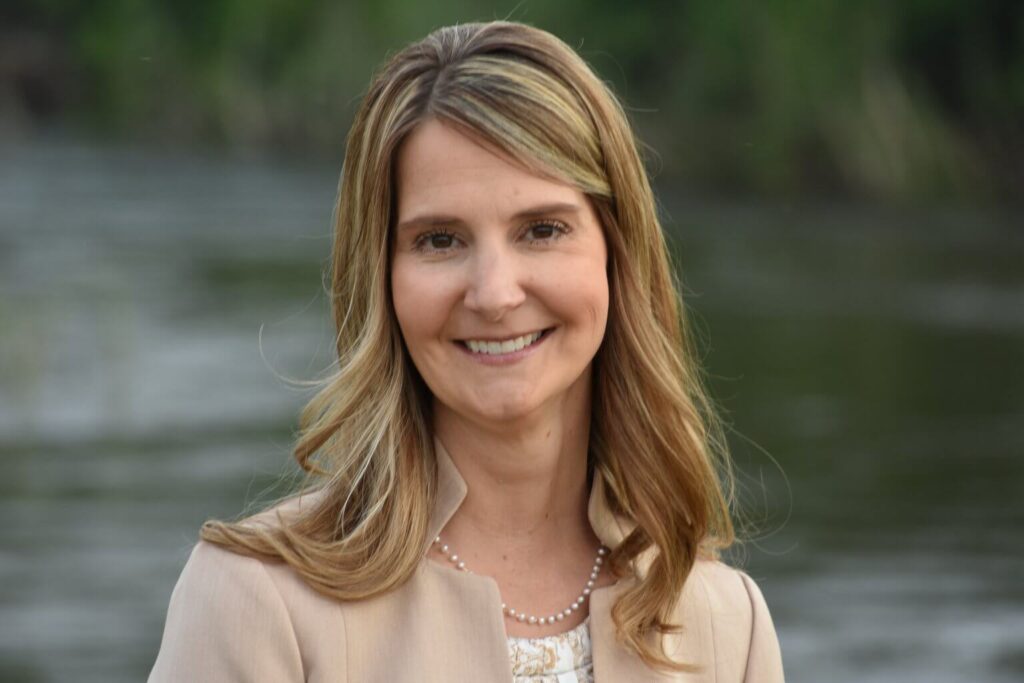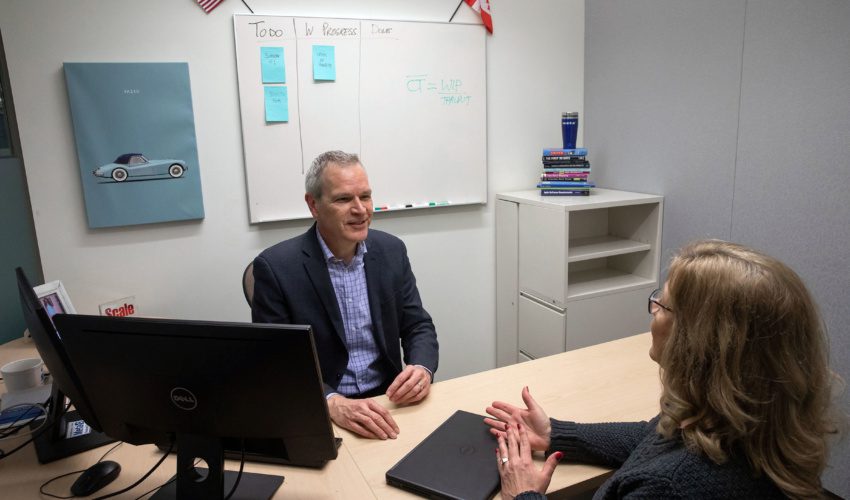Open for discussion: How are you managing your mental health as an entrepreneur?
June 6, 2022
This paid piece is sponsored by Startup Sioux Falls.
Entrepreneurship is a challenging and often lonely journey.
One of our goals at Startup Sioux Falls is to foster a more open and honest discussion about the role that mental health plays in entrepreneurship.
“As a team, we have been talking about mental health and entrepreneurship and how we can better support our community,” said Brienne Maner, executive director for Startup Sioux Falls.
“We enjoy celebrating founders and entrepreneurship, but we also believe it is important to create a space to talk about both the highs and lows of starting a business. We hope that by fostering a supportive environment, entrepreneurs in our community will have like-minded individuals and more awareness about resources to turn to.”
To begin that discussion, we reached out to several people in our community whose work is directly related to mental health, including Mary Wolf, MS, LPC-MH, BCC of Veritee Partners; Erik Muckey of Lost&Found; and Jada Dobesh of Selah Space. We also opened up the topic to our Founders Club and chatted with several members about their experiences with mental health and entrepreneurship.
Everyone had valuable insight to share, and we deeply value their transparency and vulnerability. It’s not easy, but we know that being honest about these issues can make a powerful impact for those who may be feeling alone in their struggles.
We also have an opportunity for you to join the conversation in person at our Mental Health in Entrepreneurship Community Roundtable, facilitated by Wolf. All are welcome at this free event, which will be held in the E 2 event space behind Remedy Brewing Co. at 4 p.m. Thursday, June 9.
In the meantime, keep reading to hear what some of your fellow community members had to say about the importance of transparency when it comes to mental health struggles.
How prevalent are mental health challenges among entrepreneurs?
According to Mary Wolf, who will lead the roundtable conversation, research shows that at least 72 percent of entrepreneurs report suffering from mental health issues. It’s a statistic she hopes will help people normalize the issue and become more comfortable talking about it.
Wolf is a licensed professional counselor and executive coach and has experience working with entrepreneurs. She also has a personal understanding of what it takes to run a business, having started her coaching and consulting firm, Veritee Partners, 18 months ago.
“I’m excited about developing a culture of well-being. My goal is figuring out how I can help the startup community develop a culture of well-being where our community feels supported and knows the resources for help,” Wolf said.
There are various reasons that mental health challenges are common among entrepreneurs — a primary one being that so many people work in isolation.
“When we work alone, we don’t always see from day to day that we’re getting overwhelmed or stressed. It’s helpful to have other people around us to notice and for support,” Wolf said.
Additionally, Wolf said many people actually turn to entrepreneurship because of a mental health concern.
“Often if people have a mental illness, it can be hard for them to navigate an 8-to-5 job, and they’re looking for that flexibility where they don’t have to report to a boss. It can be due to their personality, mental health or an addiction issue,” she said.
Brand photographer and educator Maddie Peschong took her side hustle full time to lighten the strain on her mental health; however to her surprise, new challenges awaited her as an entrepreneur.
“When I left my job in pursuit of owning my own business, a big part of the reasoning was because my mental health was struggling. It wasn’t because I didn’t like my job — I loved it! — but I was feeling pulled in so many directions. When I started experiencing ups and downs as a business owner, I think it’s safe to say that I was a bit surprised because I thought I had ‘fixed’ it,” she said.
Recent CO.STARTERS graduate Rachel Stroschein suffers from attention-deficit disorder and values the freedom that entrepreneurship provides.
“With my ADD, whenever I would get a taste of the 8-to-5 life or have a boss, it wouldn’t work out. Eventually, I stopped fighting that and realized I’m happier working for myself because most employers don’t really understand how my brain works. It doesn’t fit into the mold that society is programmed for,” Stroschein said.
While situations similar to Peschong and Stroschein’s are relatively common among entrepreneurs, many feel alone in their struggles or simply don’t know where to turn for support.
Erik Muckey is the executive director and CEO of Lost&Found, a nonprofit organization that provides mental health and suicide prevention resources.
“Throughout the ups and downs of launching Lost&Found after graduating from USD in 2014, I saw firsthand how being an entrepreneur, especially a social entrepreneur, could have such a dramatic impact on your mental health unless you knew how to find and access the resources needed to manage the sometimes daily swings of taking an idea to action,” Muckey said.
“I’m fortunate to have grown and led a venture that connects youth and young adults with mental health and suicide prevention resources. It is also a responsibility, as a fellow entrepreneur, to make sure that my peers understand what mental health is and how to care for it,” he added.
Transparency and vulnerability are critical for entrepreneurs when it comes to managing their mental health and gaining access to the necessary resources.
“I don’t think people mean to be misleading; we’re just not that great at being vulnerable,” Peschong said.
“It doesn’t feel natural to say to someone, ‘I’m really struggling right now with some self-worth things that are preventing me from moving forward in my business.’ But man, how great would it be if we talked about it more? It would do so much to level the playing field and help us realize that at any level business owners struggle sometimes,” she said.
Finding ways to address, manage mental health issues
In order to manage the mental health challenges that come along with entrepreneurship, it’s important to recognize symptoms and warning signs.
Wolf said common signs that an entrepreneur may be struggling are losing excitement for the business, feeling apathetic, procrastinating, putting a lot of energy toward worrying and not enjoying the things they used to.
“Maybe you normally like to get out and network or go to 1 Million Cups, but now it just feels like the most overwhelming thing. Anxiety and overwhelm are symptoms entrepreneurs need to be aware of,” she said.
Additionally, she said exhaustion and burnout are common among entrepreneurs.
“It might be that you used to like your customers, and now you’re feeling really cynical about them or only seeing customers as money rather than people that you want to connect with and serve. It’s losing the joy in your business and not feeling optimistic about it.”
Jada Dobesh, founder of the holistic wellness cooperative Selah Space, said she created her business in part to foster a different mindset about work.
“When I left my job to start this business, I kept hearing, ‘Well, nobody really likes their job, right?’ or ‘Of course, your job is stressful; everybody’s job is stressful.’ And I thought, ‘Well, why though?’” she said.
One of Selah Space’s offerings is the Entrepreneurial Wellness Group, a nine-month program for women entrepreneurs to grow in community with each other. If you’re interested, the current cohort will wrap up in July, and the next one will begin in September.
“I wanted to move into a different mindset about work and particularly entrepreneurship because that was the role I was stepping into. A lot of the Entrepreneurial Wellness Group really came from what I needed, which was community and a reminder that there is space for wellness in your work.”
Finding that space for wellness is not so much a solution as it is an ongoing practice.
“Ultimately, that’s been the biggest lesson with entrepreneurship and mental health: You are not going to ever completely overcome it. It’s not something to fix. It’s something to be aware of and get better at dealing with,” Peschong said.
Muckey adds that it’s important to take a step back and remember that entrepreneurship is a mindset not an identity. Because it involves your time, emotions and your money, it easily can become all-consuming.
“It took me some time to figure out that being an entrepreneur didn’t need to be my sole identity, and it certainly didn’t need to take precedence over my mental health. … You can launch a venture and care for your mental health. They’re not competing priorities.”
For Kristi Wire, founder of Wire Design Co., being intentional about making connections with other entrepreneurs has been helpful for managing her mental health and that of those around her.
“A lot of it is just reaching out to other entrepreneurs. Sometimes it’s just noticing that someone’s acting a little off, and it’s like, ‘OK, let’s go have coffee,’ and it’s just amazing how often it opens doors. It’s tough because it’s an organic thing, but it’s really good to be with like-minded people because you’re going through the same things,” she said.
Through events like the Mental Health Roundtable and offerings like the Founders Club and the new downtown location, Startup Sioux Falls is working to create spaces for entrepreneurs to find other like-minded people and feel more comfortable having hard conversations.
“We are so much better together. We’ve had enough isolation — how do we come together and connect and talk about an important topic that really affects every one of us?” Wolf said.
Learn more and RSVP to Startup Sioux Falls’ Mental Health in Entrepreneurship Roundtable.












